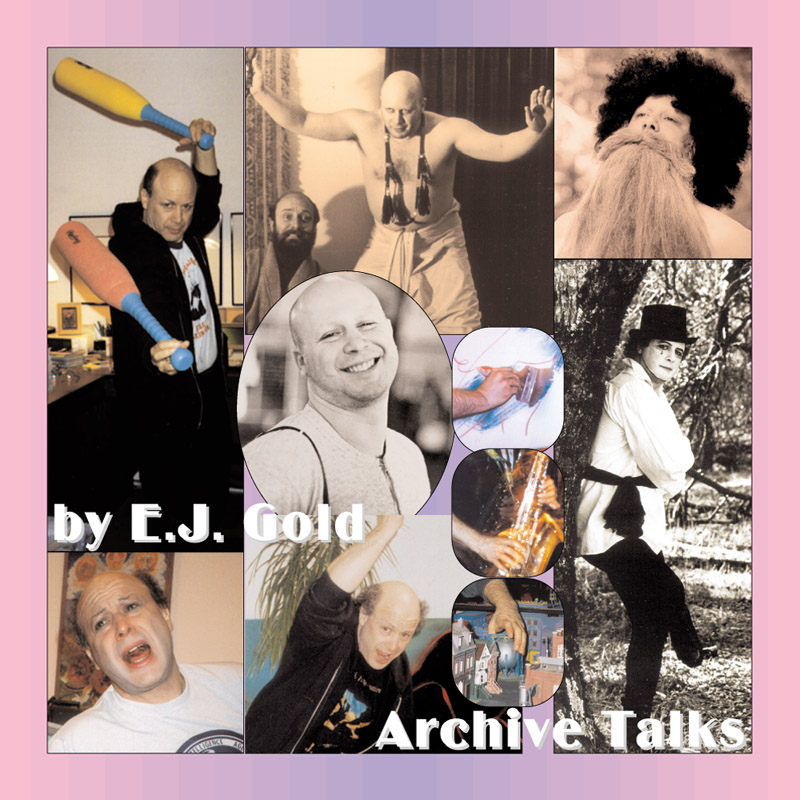

CDT267
The Making of the ABD - Part II
Bardo; Death & Dying; Interviews
On December 6, 2002 Paul Barnes and Miguel Lopez, from Spain, interviewed E.J. Gold. They asked the questions and got the answers we all want to know. How do the teachings of the Books of the Dead relate to Bardo Gaming? How does one prepare for the last journey by computer gaming? If you were fortunate and heard the talk "The Making of the American Book of the Dead" recorded in the '70s in Vancouver, then you won't want to miss this one. "A wonderful bi-lingual romp, with full simultaneous translation (including jokes and puns) in both Spanish and English. Not to be missed. Listen to it again and again!" Patricia Elizabeth, Co-Director - Labyrinth Readers Society
Synopsis
The conversation explores E.J. Gold's work, focusing on his books and creative endeavors. Key themes include death and transformation, art and video games as tools for experiential learning, and practical spiritual techniques. The discussion highlights his contributions to Western interpretations of esoteric teachings and their connection with personal development.
Summary
E.J. Gold, an artist, writer, composer, and video game developer, discusses his life’s work and its connection to death and self-transcendence. He emphasizes that dying and passage beyond life are central themes in his teachings. His book, *The American Book of the Dead*, was written to make *The Tibetan Book of the Dead* comprehensible to Western audiences, with a language and style reflective of 1970s psychedelic culture. Gold details his work in painting and video games, explaining how both serve as immersive tools for personal transformation, attention training, and experiential learning. His video games are designed to simulate the bardo states from Tibetan traditions, offering players a hands-on approach to existential understanding.
He contrasts virtual reality training with traditional spiritual study, highlighting that books provide theoretical foundations, whereas interactive mediums like painting, movement, and gaming allow for direct experience. Gold also discusses his perspective on spirituality, arguing that all traditions derive from a common root but may be seen as conflicting due to institutional or financial interests. He advocates for meditation in dynamic forms, such as painting, martial arts, and even everyday activities, and underscores attention as the foundation of all personal work. Lastly, he expresses interest in visiting Spain but mentions health concerns that may limit travel.
Keywords & Key Phrases
- Death & dying as central theme
- Passage beyond life
- Experiential learning
- Bardo immersion in video games
- Attention as spiritual foundation
- Painting as meditation
- Western adaptation of Eastern teachings
- Virtual reality training
- Personal work on self
- Movement as awareness practice
- Cognitive engagement in gaming
- Mysteries of Western tradition
- Translation of esoteric knowledge
- Institutional resistance to new paradigms
Graphic Prompt
"Hyperreal painting of a twilight realm, merging elements of surreal landscapes and cybernetic architecture. A lone figure walks through glowing bardo spaces, transitioning through portals of light. The environment is infused with cosmic nebulas and ancient symbols. A fusion of traditional Tibetan motifs and futuristic digital aesthetics. The atmosphere is ethereal, a cross between dreamlike and hyper-detailed realism, evoking themes of transcendence, consciousness, and passage beyond life."



